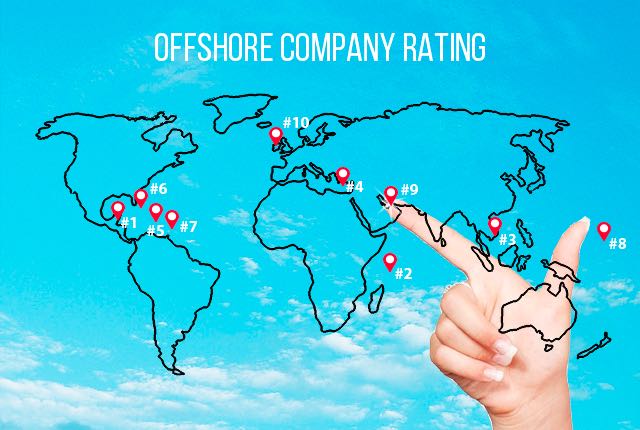Grasping Offshore Company Formation: Crucial Steps and Standards
Wiki Article
Offshore Business Formation Demystified: Trick Considerations and Ideal Practices
Navigating the intricacies of offshore company development needs a keen understanding of various aspects that can significantly impact the success and validity of such endeavors. As the complexities of developing an overseas company unravel, a strategic approach directed by ideal practices becomes critical in guaranteeing a lawfully sound and smooth procedure.Legal Jurisdiction Choice
Picking the proper legal territory is an essential choice when developing an offshore company, as it substantially affects the regulatory structure within which the entity will certainly operate. Different jurisdictions offer varying degrees of tax obligation performance, regulatory requirements, privacy protections, and political stability. The selection of jurisdiction should line up with the specific objectives and requirements of the overseas company.
In addition, the governing environment of a territory is important. Some territories have stringent economic regulations and conformity needs, which can be difficult for sure kinds of companies. On the other hand, even more lax governing atmospheres might provide versatility but could also pose dangers in regards to track record and legality.
Tax Effects Analysis
Taking into consideration the tax obligation ramifications is a fundamental facet of developing an overseas business as it directly impacts the monetary framework and operational methods of the entity - offshore company formation. Among the primary reasons businesses decide for offshore business formation is to profit from positive tax regimens. Carrying out a complete tax obligation effects analysis is essential to guarantee conformity with regional and worldwide tax obligation legislations while taking full advantage of tax obligation effectiveness. Variables such as company tax rates, withholding tax obligations, value-added tax obligation (BARREL), and tax obligation treaties in between territories must be very carefully reviewed. Additionally, understanding the implications of regulated foreign company (CFC) guidelines and move pricing guidelines is important to prevent and alleviate possible dangers tax evasion claims. Working very closely with tax obligation experts or consultants who focus on worldwide tax obligation issues can give valuable insights and guidance in structuring the overseas company in a tax-efficient fashion. By proactively addressing tax factors to consider throughout the formation process, services can enhance their tax obligation obligations and enhance total financial efficiency.Company Structure Preparation
Reliable business framework planning plays a crucial role in the effective facility and operation of an overseas firm. One common approach is to establish a holding firm in a territory with positive tax regulations to hold the assets of the running firm, which may be situated in a different jurisdiction for functional functions.
Furthermore, the choice of company structure, whether it be a minimal responsibility company, a firm, or a trust fund, can considerably influence the general success of the offshore venture. By carefully planning the corporate structure, offshore companies can enhance their operational performance, safeguard their assets, and maximize their tax responsibilities.
Conformity and Regulative Requirements
What are the vital compliance and regulatory needs connected with developing and operating an overseas company? When setting up an overseas business, it is critical to abide by the governing frameworks of both the offshore jurisdiction and the home country of the company owners. Common conformity needs include the submission of yearly financial declarations, preserving appropriate accountancy records, and carrying out normal board meetings. Furthermore, overseas business usually need to select regional supervisors or a signed up representative to make sure compliance with neighborhood laws.In addition, understanding and adhering to worldwide guidelines, such as anti-money laundering (AML) and understand your client (KYC) requirements, are essential for overseas companies to stop illicit tasks. Due diligence in validating the identifications of beneficial proprietors and guaranteeing transparency in service procedures are important elements of governing conformity.
To navigate these intricacies effectively, engaging with lawful and monetary professionals with knowledge in overseas regulations is very recommended. Staying upgraded on altering governing landscapes and proactively dealing with compliance concerns can aid offshore firms run legally and morally while optimizing their company capacity.
Banking and Monetary Factors To Consider
When developing an overseas company, mindful attention to banking and monetary factors to consider is vital for ensuring operational performance and regulatory conformity. Selecting the appropriate banking partner is important, as it can affect the firm's daily purchases, accessibility to resources, and overall monetary stability. Offshore companies usually pick banks in territories recognized for their stability, economic browse around this web-site framework, and beneficial guidelines. It is vital to take into consideration aspects such as the bank's online reputation, array of solutions used, charges, and its adherence to worldwide financial criteria.Additionally, comprehending the official statement banking guidelines in both the offshore jurisdiction and the home nation is important to stay clear of any lawful concerns. Some offshore territories have strict banking privacy regulations, which might impact the flow of information between the firm, its investors, and the bank. Conformity with anti-money laundering (AML) and recognize your consumer (KYC) regulations is likewise essential to stop monetary crimes and keep a good standing with regulatory authorities. By meticulously navigating the banking and monetary landscape, offshore firms can establish a strong economic foundation for their operations.

Final Thought
In conclusion, overseas firm development involves cautious consideration of lawful jurisdiction, tax obligation ramifications, corporate framework, compliance, and banking factors to consider. On the whole, extensive planning and adherence to financial and lawful guidelines are essential for a successful overseas business formation procedure. Effective))))Thinking about the tax obligation ramifications is an essential element of developing an overseas firm as it straight affects the economic framework and functional techniques of the entity. Working closely with tax obligation experts or experts who specialize in global tax matters can offer useful insights and advice in structuring the overseas company in a tax-efficient fashion. One typical technique is to establish a holding firm in a jurisdiction with favorable tax obligation regulations to hold the assets of the operating business, which might be located in a various territory for functional functions. When setting up an offshore company, it is crucial to stick to the governing structures of both the offshore jurisdiction and the home country of the firm proprietors.In conclusion, overseas business formation includes cautious factor discover here to consider of legal territory, tax obligation implications, corporate framework, compliance, and financial considerations.
Report this wiki page